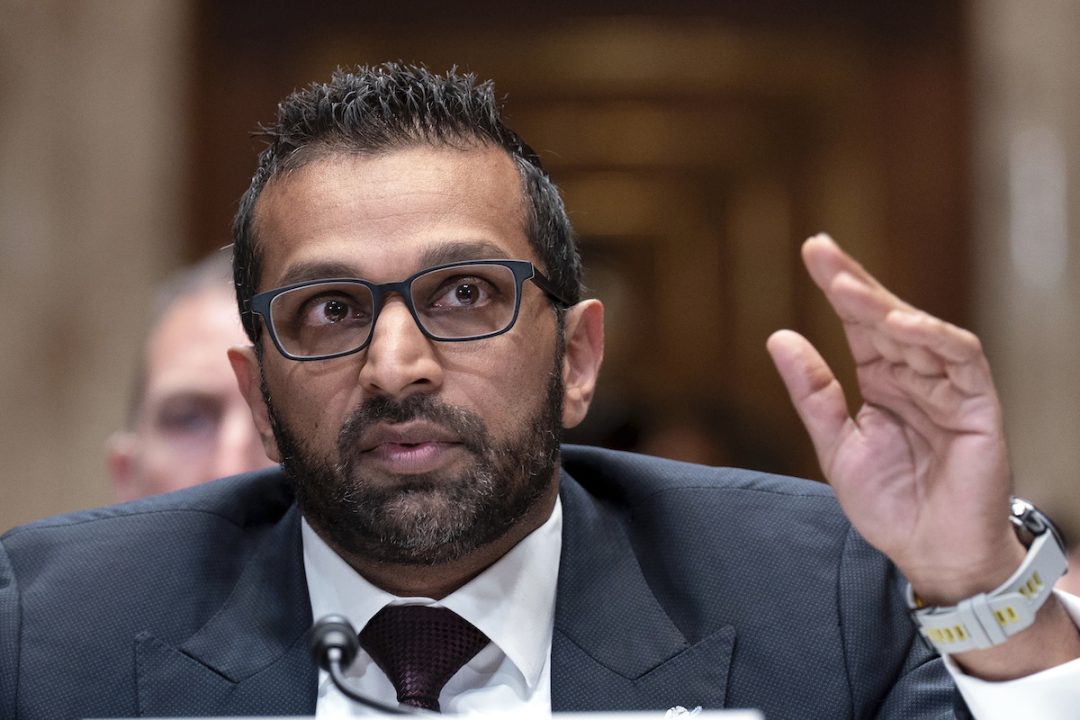
FBI Director Kashyap “Kash” Patel’s appearance before the Senate last week delivered a gut punch to many Americans who believe Jeffrey Epstein didn’t kill himself. When asked point-blank by Senator John Kennedy (R-La.) whether Epstein had been murdered, Patel offered a flat, unconvincing answer: “I believe he hung himself.”
How Did Epstein Die?
During Thursday’s Senate Appropriations Committee hearing, Senator Kennedy posed the question millions have asked since 2019.
“Did Jeffrey Epstein hang himself or did somebody kill him?” Kennedy asked.
Patel replied, “I believe he hung himself in a cell in the Metropolitan Detention Center.”
The Senator fell silent for a moment. No doubt, the answer also stunned viewers who expected more from a man once known for pushing speedy and complete declassification effort to bring the truth to the American public.
Kennedy then pressed Patel on whether the FBI would finally release the files related to Epstein’s death, and Patel said, “We are working through that right now with the Department of Justice.”
Asked when that release would happen, he offered a vague, “In the near future.”
“Like, before I die?” Kennedy quipped.
Patel grinned awkwardly, mincing his words as he replied, slowly and deliberately:
Senator, we are…. We are…. We’ve been working on that. And we’re doing it in a way that protects, um … victims, and also doesn’t, um … put out into the ether information that is, um … irrelevant to the public, such as [Child Sexual Abuse Material.]”
To many, the words rang hollow.
From Declassification Warrior to Gatekeeper?
This wasn’t the Kash Patel the “MAGA” world once cheered.
Over the past few years, Patel, a former prosecutor and intelligence official, styled himself as a warrior against the Establishment.
He acknowledged the immense role of the unconstitutional federal law-enforcement apparatus in suppressing truth and consolidating power. He even promised to shut down the FBI’s Hoover Building on Day One — and reopen it as a museum of the Deep State.
Now, as FBI Director, he holds the Epstein files — and keeps them buried.
Evidently, testifying before Congress, Patel offered only deflection. No dates. No substance. Just a practiced stream of buzzwords: “process,” “victim protections,” “irrelevant information.”
Online, fury followed.
“Kash Patel is cooked,” wrote journalist Ryan Matta reflecting on the Kennedy-Patel exchange.
Earlier in March, another popular account reposted a snippet from Patel’s September 2024 interview, where he railed against the Deep State’s dirty tricks. The critic accused the FBI director of failing to “even lift a finger” to release the Epstein files.
Slow-walking the Release
Patel isn’t the only official under fire.
Attorney General Pam Bondi took office in January with a bold promise of full transparency. On February 21, following President Donald Trump’s directives, she said the Epstein client list was “sitting on her desk,” waiting for “review.”
Notably, early in his second term, Trump ordered the declassification of the “JFK, RFK, and MLK assassination files.” Yet, the text of the EO does not mention the Jeffrey Epstein case. Still, Bondi indicated that the directive extended to Epstein-related files as well.
As no release was taking place, public pressure mounted. Particularly, a bipartisan Declassification Task Force, led by Representative Anna Paulina Luna (R-Fla.), demanded Bondi release the full trove of Epstein records.
In February, the DOJ issued what it called “Phase 1” of the Epstein file release. It was, by all accounts, a letdown. The drop included heavily redacted flight logs, contact lists, and scanned evidence sheets — most of which had already leaked or been reported in previous years.
Bondi shifted blame onto the FBI field office in New York for withholding thousands of documents. Yet, critics were furious with Bondi’s apparent ineptitude.
Backlash
After the DOJ failed to respond to four FOIA requests on the Epstein files, conservative watchdog Judicial Watch filed a FOIA lawsuit. It seeks the release of records related to Epstein, including the identities of his clients and associates.
Last week, Representative Luna issued another public demand for immediate, unredacted disclosure. “AG Bondi needs to stop stonewalling and communicate with us,” stressed the congresswoman.
Other Republicans began to question the DOJ as well. Representative James Comer (R-Ky.) said last Tuesday he wasn’t sure the DOJ and FBI even had the Epstein files at all.
“I hope they’re not shredding documents right now,” he said, echoing growing public suspicion.
Bondi pushed back. She insisted the files exist — and they’re damning.
Like Patel, Bondi cites ongoing review and the need to protect victims. But even inside the Beltway, few are buying it.
The Mysterious Death
Jeffrey Epstein died on August 10, 2019, inside his Manhattan jail cell.
The official story claims he hanged himself using a bedsheet. The medical examiner ruled the death a suicide.
But everything about the case screams coverup.
Epstein had attempted suicide weeks earlier and was placed on watch — only to be taken off days later without explanation. The two guards assigned to monitor him “fell asleep” and falsified logs. Surveillance cameras outside his cell mysteriously stopped working that night. And the autopsy? It showed broken bones more consistent with strangulation than hanging.
Even the mainstream press raised eyebrows. But no charges were filed. No staff punished.
The Web No One Wants to Touch
Epstein wasn’t just a pedophile and trafficker. He was a financial manipulator with powerful allies — and very likely an asset of intelligence services.
His ties cut across political and corporate lines. He was close with Bill Clinton, advised Prince Andrew, and socialized frequently with Donald Trump. Photos place him beside Ehud Barak, former Israeli Prime Minister, outside his Manhattan townhouse. Multiple reports suggest he managed offshore accounts for U.S. and Israeli clients tied to state intelligence operations.
Despite lacking a formal investment license, Epstein handled vast sums for billionaires — most notably L Brands’ Leslie Wexner, who gave him sweeping control over his fortune. Among those who met with Epstein regularly — even after his 2008 conviction — was Bill Gates.
Epstein flew scientists, academics, and tech moguls across the globe on private jets. His estates weren’t just luxurious — they were saturated with hidden cameras, designed to capture and collect.
Then, there are banks. Deutsche Bank was fined $150 million in 2020 for enabling Epstein’s transactions, ignoring years of compliance flags. JPMorgan Chase, where Epstein banked for over a decade, paid a combined $365 million in settlements amid accusations it knowingly facilitated his sex-trafficking operations.
Therefore, as much as the media and political class prefer to fixate on the salacious details, Epstein was never just a perverse outlier. He was a functionary within a sophisticated and deeply nefarious system — one where sexual blackmail isn’t a scandalous side effect but a deliberate instrument of political control. And Epstein wasn’t the architect. If anything, he was the middleman — the custodian of kompromat — managing money, surveillance, and access on behalf of far more powerful forces.
Nothing about this points to a man who simply “hanged himself in a jail cell.”





